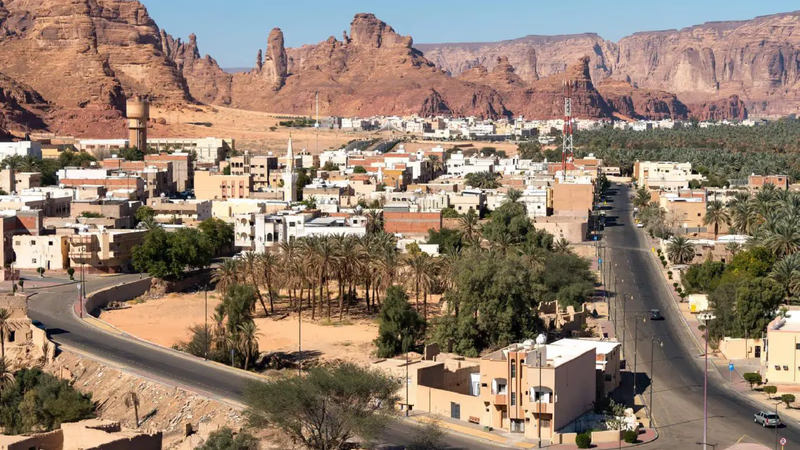
Saudi Arabia"s natural resources drive trade and industry growth. "
Saudi Arabia is known for its abundant reserves of oil, which has played a crucial role in shaping its economy and global energy markets. The country possesses one of the largest oil reserves in the world, and oil production and exports have been the primary drivers of its economy for decades. The petroleum industry in Saudi Arabia is managed by the national oil company, Saudi Aramco, which is one of the largest oil companies globally. They oversee the exploration, production, refining, and export of oil and petroleum products. Saudi Arabia has significant oil fields, including the Ghawar Field, the largest conventional oil field in the world.
In terms of industries, Saudi Arabia has a thriving petrochemical sector. It has invested heavily in the production of petrochemicals, such as plastics, fertilizers, and chemicals, leveraging its oil and gas resources. The country is one of the world's largest exporters of petrochemical products. Additionally, Saudi Arabia has a well-developed construction industry. The government has undertaken numerous infrastructure projects, including the construction of cities, roads, airports, and railways, to support economic diversification and enhance the country's infrastructure.
The agricultural sector in Saudi Arabia is also of significance. Despite its arid climate, the country has made significant progress in agricultural production through the use of advanced irrigation techniques and technology. The cultivation of crops, such as wheat, dates, vegetables, and fruits, is supported by large-scale farming operations and greenhouse cultivation. Furthermore, Saudi Arabia has a growing manufacturing sector, with a focus on industries like steel, aluminum, cement, and pharmaceuticals. The government has been encouraging the development of local industries and promoting industrialization through various initiatives.
The country is rich in natural resources such as gold and copper, crude Oil, natural gas, and iron. However, in terms of forests and forest areas, deforestation and agriculture are poor. Most plants grow in oases. With more than 260 billion barrels of Oil, Saudi Arabia holds more than 14% of the reserves of this vital substance. This figure is equivalent to 33% of the total reserves of other member countries of the Organization of Petroleum Exporting Countries (OPEC). Saudi mines are mostly located in the Hejaz Mountains and the Asir region and the Najd region. The two industrial cities of Yanbu on the Red Sea coast and Al-Jubail on the Persian Gulf coast have been built to regulate the state of Saudi resources and mines.
Saudi Arabia's uranium mineral reserves are large enough to allow it to produce nuclear fuel without the need for imports. Saudi Arabia, the largest Arab economy and the economic hub of the Persian Gulf, is governed by Oil revenues and is the largest producer of the Organization of Petroleum Exporting Countries (OPEC). The country has reaped huge benefits from Oil exports (especially after the sudden rise in Oil prices in 1973-74).
Saudi Arabia uses Oil revenues to implement long-term plans for its economic infrastructure and the development of modernism, as well as health, social and educational development. A large part of the Saudi government's budget is allocated to the armed forces and the purchase of advanced weapons from abroad. Public employment and subsidies for production and consumption have also been part of the country's expenditures.
The largest economic sectors and the maintenance of a high standard of living depend entirely on government subsidies. Of course, borrowing from foreign banks has been on the agenda since the late 1980s, and the need for economic reform is felt at times when Oil prices are falling. The Saudi royal family favors a free, Western-leaning economy. It relies on Western and Japanese investments in many economic sectors, especially Oil.
Therefore, in many economic sectors, Western management has a significant share. But at the same time, the share of the Saud tribe, especially in the Oil and gas industry, has been increasing in recent years. Most of Saudi Arabia's workforce is foreign. In recent years, Saudi Arabia's economic structure has been based on Oil conversion and refining industries, as well as non-Oil exports, and long-term plans have been drawn up.
Industry of Saudi Arabia
Saudi Arabia has increased its share of crude Oil revenues in the development of industrial projects. Saudi Arabia's industrialization program focuses on building Oil and gas refineries. At the end of 2005, Saudi Arabia estimated its proven gas reserves at 1.2 trillion cubic meters, ranking fourth in the world.
The country's proven Oil reserves are estimated at 7 billion barrels. The main projects are being implemented under cooperation agreements between the government and foreign companies. The share of manufacturing factories in GDP in 2004 was 94,962 million rials and the average annual production between the years 2004-2009 was 4.8 percent. Manufacturing plants, which accounted for 9.5 percent of GDP in 2005, have invested more than $ 66,000 million since the mid-1980s.
In recent years, Saudi Arabia has taken steps to diversify its economy and reduce its dependence on oil. The government has been implementing a strategy called Vision 2030, which aims to develop other sectors such as tourism, entertainment, manufacturing, and technology. This diversification effort includes the establishment of economic zones and the promotion of foreign investment. Apart from oil, Saudi Arabia has other valuable natural resources. It has substantial reserves of natural gas, which are being increasingly utilized for domestic consumption and export. The country also has significant mineral resources, including bauxite, gold, copper, phosphate, and zinc.
-

Saudi Arabia"s economy is heavily reliant on its vast oil reserves, managed by Saudi Aramco, the world"s largest oil company. The country holds over 260 billion barrels of oil, accounting for more than 14% of global reserves. Beyond oil, Saudi Arabia has developed a robust petrochemical sector and invested in infrastructure projects to diversify its economy. The agricultural sector has also seen advancements through modern irrigation techniques, enabling the cultivation of crops despite the arid climate. Additionally, the manufacturing industry is growing, focusing on steel, aluminum, and pharmaceuticals. The government promotes industrialization and local industries while also exploring its mineral resources like gold and copper. With a significant portion of its budget allocated to public employment and subsidies, Saudi Arabia"s economic structure is influenced by oil revenues. However, there is an ongoing need for economic reform as fluctuations in oil prices impact government spending.
The Vision 2030 initiative aims to reduce dependence on oil by fostering sectors such as tourism and technology while attracting foreign investment. This diversification strategy includes establishing economic zones to enhance trade opportunities. "
-
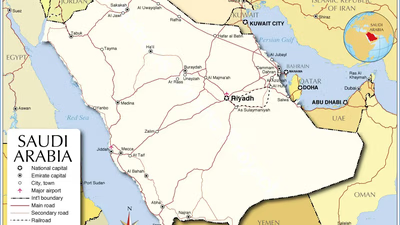
Saudi Arabia, the largest country in West Asia, occupies most of the Arabian Peninsula and is bordered by several nations including Jordan, Iraq, and Yemen. Its capital is Riyadh. The region is significant for its historical, cultural, and geopolitical importance, serving as a crossroads for Asia, Africa, and Europe. Saudi Arabia is rich in natural resources, particularly oil and gas, which dominate its economy—oil accounts for 95% of exports and 70% of government revenues. The country has seen rapid modernization due to extensive oil revenues. Additionally, Saudi Arabia has the sixth-largest natural gas reserves globally. The Middle East"s diverse landscapes include deserts and fertile valleys, with a complex geopolitical landscape shaped by various conflicts. The region is also culturally rich, home to numerous ethnic groups and languages.
Saudi Arabia"s historical significance includes being the birthplace of Islam and hosting important religious sites such as the Kaaba and the Prophet"s Mosque. "
-
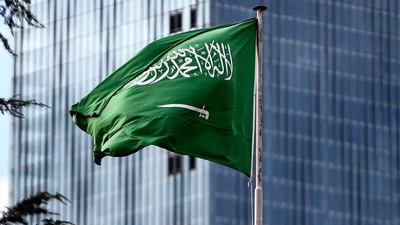
Saudi Arabia"s economy is heavily influenced by its oil industry, which accounts for 90% of its GDP. The country is a leading oil producer and exporter, but it ranks 22nd globally in total exports. Efforts under Vision 2030 aim to diversify the economy by boosting non-oil sectors such as manufacturing, construction, and tourism. The trade balance is significantly affected by oil exports and imports of goods and services. Despite its economic size, Saudi Arabia faces challenges like a high unemployment rate of 12. 9% as of 2018 and lower per capita income compared to the U. S. Additionally, foreign direct investment (FDI) reflects investor confidence in the economy, contributing to growth and job creation.
The ease of doing business index indicates improvements in the regulatory environment to attract investments. Saudi Aramco stands out as the world"s most profitable company, showcasing the dominance of the oil sector in Saudi Arabia"s fiscal landscape. "
-
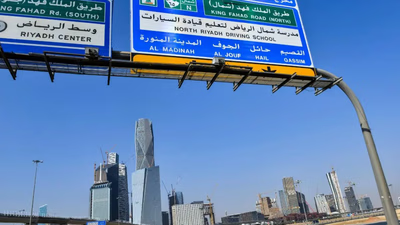
Saudi Arabia"s transport infrastructure is diverse, featuring extensive road networks, air travel, railways, and maritime routes. Road transportation is the most prevalent mode, with modern highways connecting major cities and facilitating both passenger and freight movement. The country boasts several international airports that serve as key hubs for global connectivity. Public transportation systems, including buses and metro networks in cities like Riyadh, enhance urban mobility. The railway network has expanded significantly since its inception in 1951, now totaling 2,785 kilometers and supporting both passenger and cargo services. Notably, the railway facilitates the transport of goods such as petroleum products and grains between key locations. Maritime transport also plays a crucial role in trade, with several major seaports enabling import and export activities. Overall, Saudi Arabia"s transport systems are integral to its economic growth and trade dynamics.
-

Saudi Arabia enforces strict regulations on the importation of various goods, primarily due to cultural and religious beliefs. Prohibited items include alcohol, pork, illegal drugs, firearms, and pornographic materials. The country also restricts the import of certain animals and animal products, gambling devices, counterfeit goods, and materials that contradict Islamic values. Additionally, specific medications may require special permits for importation. Despite these regulations, smuggling remains a challenge, with significant quantities of prohibited items being intercepted at borders. Understanding these restrictions is crucial for businesses engaged in trade within the region to ensure compliance and avoid legal issues.
-
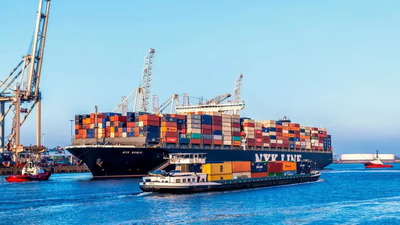
Saudi Arabia enforces strict regulations on the import and export of goods to ensure compliance and safety. Customs authorities are responsible for inspecting cargo, verifying documentation, and enforcing restrictions. If violations are detected, a security label is affixed to the consignment, which is then stored by the shipping company until the owner can retrieve it in the presence of a customs inspector. In cases where the owner does not claim the cargo, it may be transferred to a designated location for further inspection. High-risk shipments undergo physical inspections at ports or airports to verify compliance with regulations. Customs authorities meticulously review shipping documents for accuracy; discrepancies can lead to penalties or further investigations. Serious violations may result in confiscation of goods, legal proceedings, and potential forfeiture. The enforcement of these laws is crucial for maintaining trade integrity within Saudi Arabia"s B2B marketplace and regional trade dynamics. "






